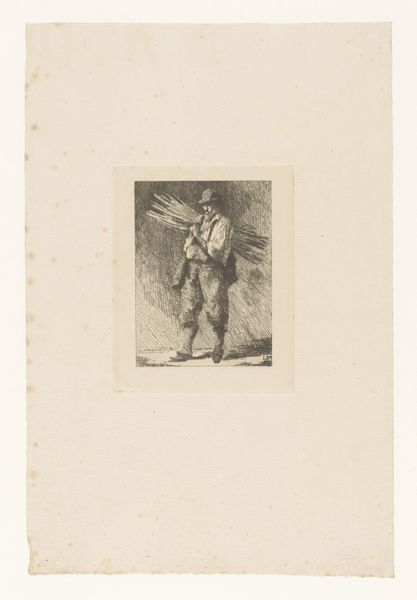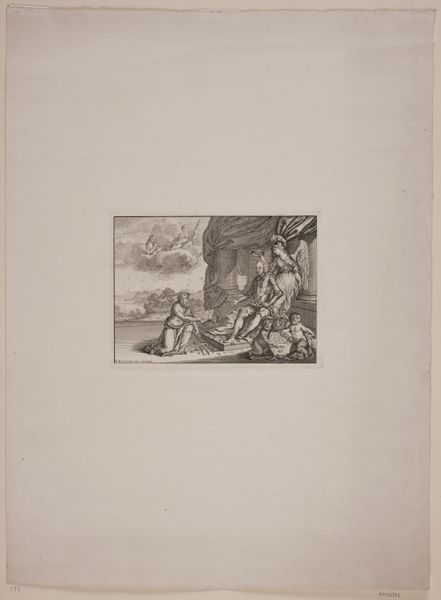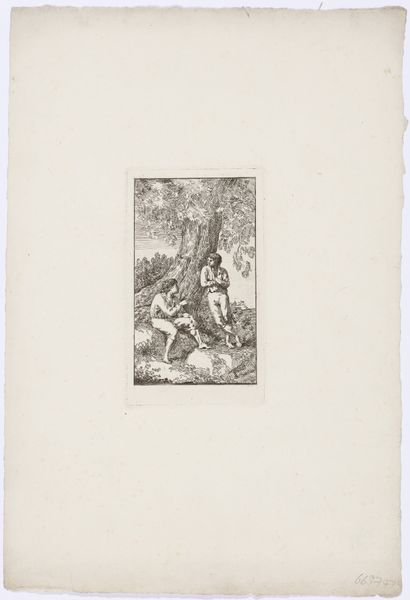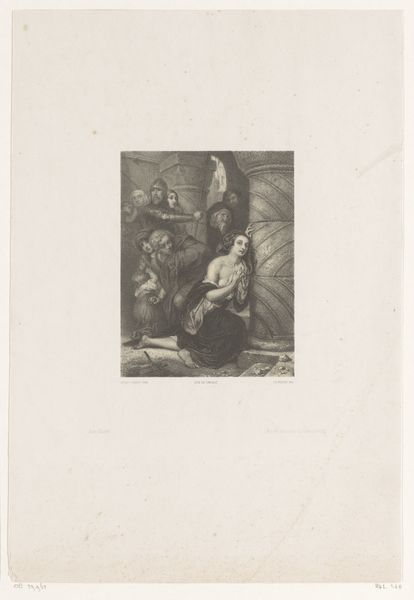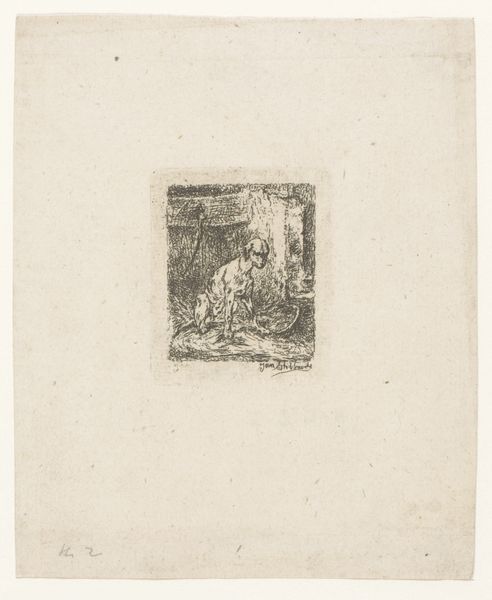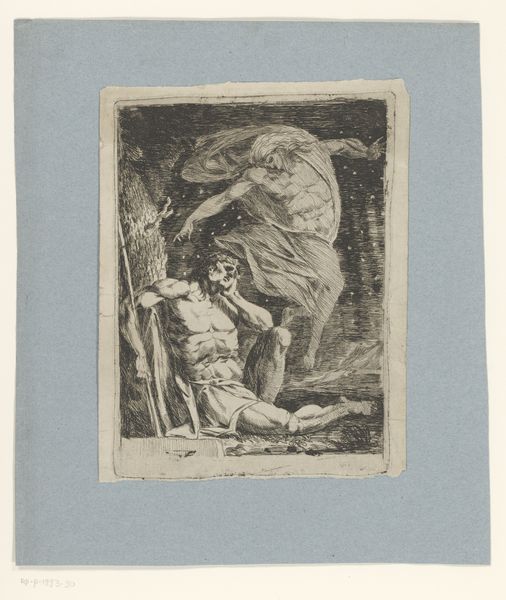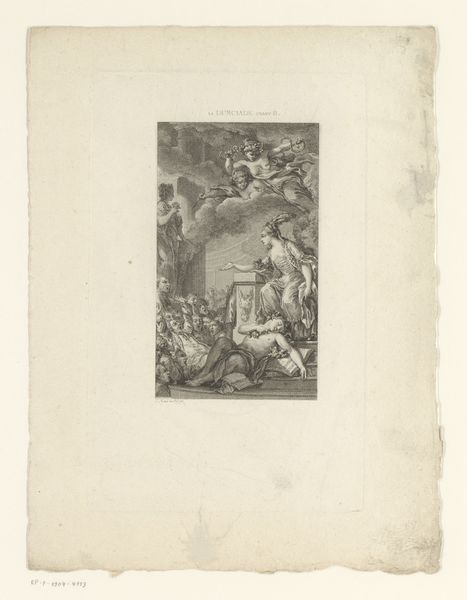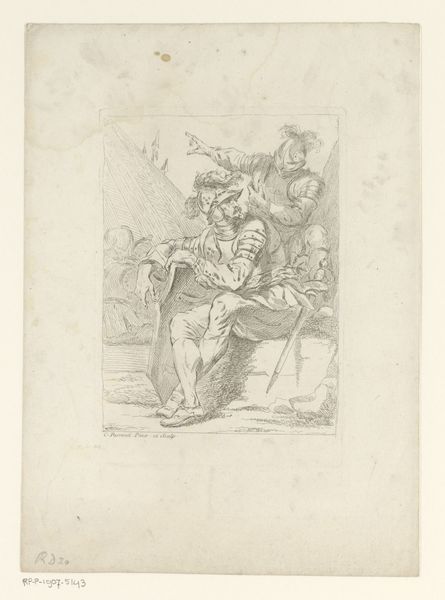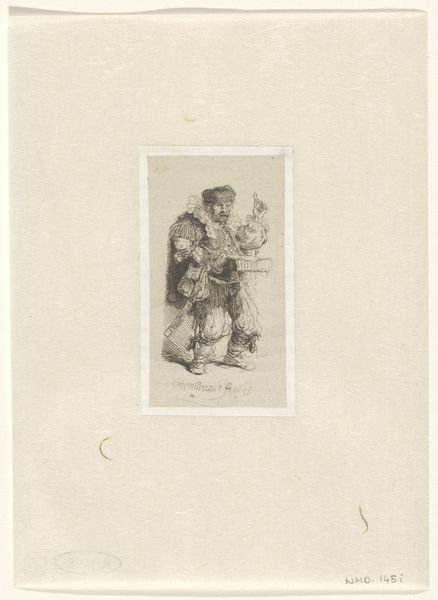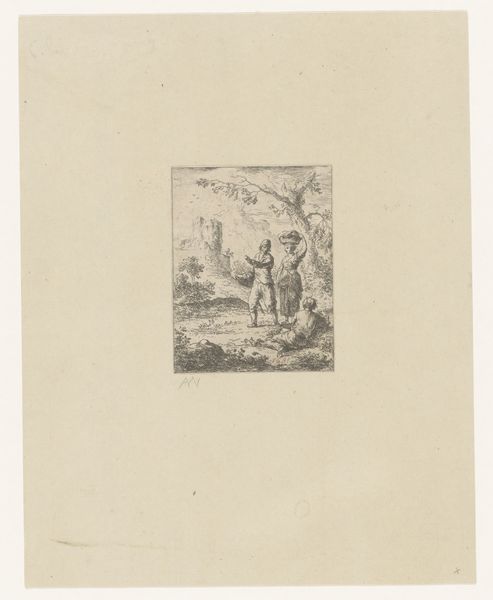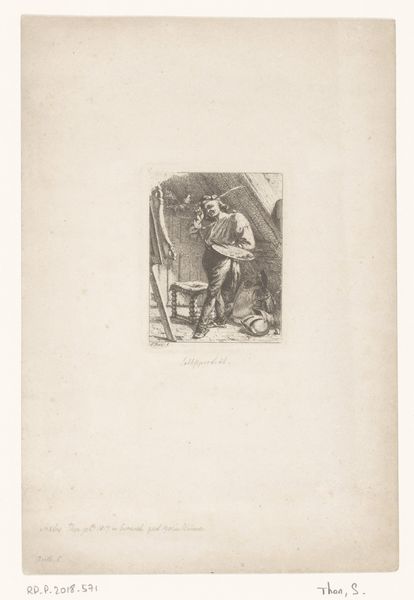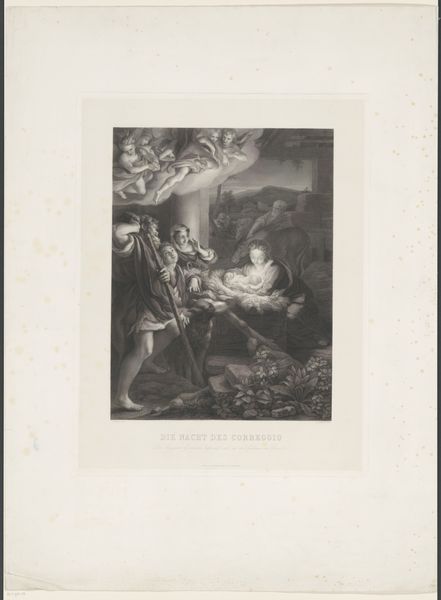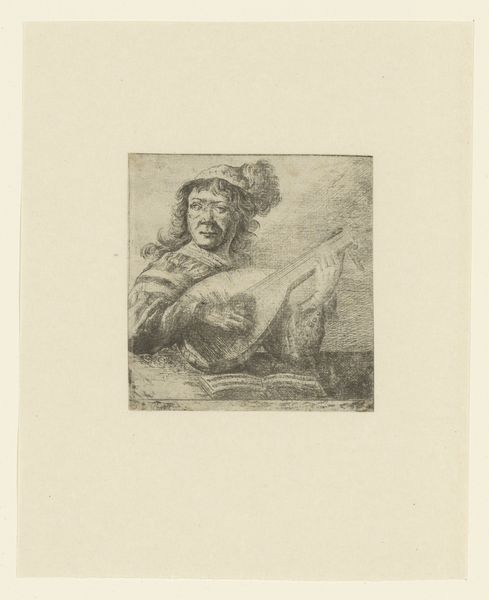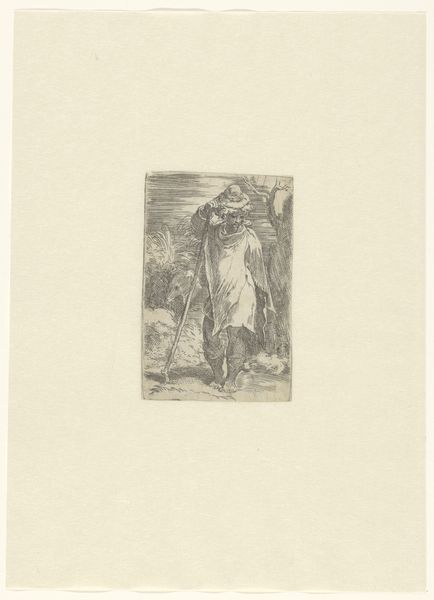
#
pencil drawn
#
photo of handprinted image
#
light pencil work
#
ink paper printed
#
pencil sketch
#
old engraving style
#
personal sketchbook
#
ink colored
#
sketchbook drawing
#
pencil work
Dimensions: height 142 mm, width 115 mm
Copyright: Rijks Museum: Open Domain
Editor: This is "Zittende hellebaardier," or "Seated Halberdier," by Charles Jacque, made in 1846. It's an ink on paper print, and the figure feels very intense and brooding. What symbols or narratives do you see emerging from this image? Curator: The halberd itself is a powerful symbol, isn't it? It speaks to protection, authority, and readiness. But consider *how* it's held, almost casually. It suggests both confidence and a potential weariness. What kind of cultural memory does this image evoke? Are we remembering glorious battles or something else entirely? Editor: I’m leaning towards something else... maybe contemplation before battle, the weight of responsibility... There’s a lot of darkness around him, almost like a halo, or a looming presence. Curator: The dark tones are important. They create a psychological space. Look at his face – the slight frown, the way the light catches his eyes. Does it strike you as an individualized portrait, or is he more of an archetype? A symbol *of* a halberdier, perhaps? Editor: I see both. There's detail, suggesting an individual, but he definitely feels like a representation of a certain type – the weary warrior, maybe? It makes me wonder about Jacque's intent – was it a study of a person, or something more conceptual? Curator: Exactly. The tension between the individual and the archetype gives the image its power. And what about the cultural continuity? This image carries echoes of other halberdiers in art, even as it presents something new. Editor: It’s fascinating how a single image can hold so many layers of meaning. Thinking about those symbols definitely gave me a richer view. Curator: Indeed. It shows how images borrow, and re-contextualize symbolic meaning throughout history, as well as the enduring psychological weight they carry across time.
Comments
No comments
Be the first to comment and join the conversation on the ultimate creative platform.
